Assisted Living in Maryland
Just over 15% of Maryland's population is over 65 years of age, the second-largest demographic in the state according to US Census Bureau data. The Free State is defined by abundant waterways and coastlines, world-class healthcare, an extraordinary variety of senior living services and home health care services, and an abundance of historic sites and cultural pedigree. It's little wonder that the state appeals to retirees.
As a monthly median average, assisted living in Maryland costs $4,300, just slightly above the national average of $4,051, according to the Genworth Cost of Care Survey.
This guide covers the basics of assisted living in Maryland, including cost comparisons to nearby states, among urban centers in the state itself and between different kinds of care. It also covers overall quality of life, financial support, information resources and the laws and regulations affecting Maryland assisted living programs or ALPs.
SeniorAdvice's Guide to Assisted Living in Maryland
SeniorScores are calculated based on over 100 variables, and those final scores are calibrated on a linear curve. The ultimate goal is to create an accurate picture of the pros and cons for senior living in any given region. Maryland has a 75 SeniorScore, an excellent score above the national average of 72.
SeniorScore™ for Maryland
 The SeniorScore™ is calculated based on over 100 variables, some of which are shown below. The final score is curved based on a linear curving method. For More info visit senioradvice.com/seniorscore.
The SeniorScore™ is calculated based on over 100 variables, some of which are shown below. The final score is curved based on a linear curving method. For More info visit senioradvice.com/seniorscore.
- Maryland's SeniorScore™ of 75 is higher than the national average of 72.
- Maryland has very high access to Medicare registered healthcare providers.
- Maryland has a high number of hospitals within the state.
- Maryland has a very high number of senior living facilities within the state.
- Maryland has a high number of home healthcare providers operating in the state.
- The average life expectancy in Maryland is 78.8, compared to the national average of 78.6.
- Maryland has a very high overall property crime rate compared to national averages.
- Maryland has a very high overall violent crime rate compared to national averages.
- 28% of the population in Maryland are seniors, compared to 29% nationally.
- Maryland has 173 golf courses in the state.
- Maryland has an average number of municipal parks throughout the state.
- Maryland has 2,988 churches in the state.
- The property taxes average 3.06% of total income in Maryland, which is higher than the national average of 2.79%.
- The property taxes average 0.86% of property value in Maryland, which is significantly lower than the national average of 1.09%.
- The average sales tax in Maryland is 6.00%, which is significantly lower than the national average of 6.97%.
- The average state income tax in Maryland is 4.15%, which is significantly higher than the national average of 3.38%.
- The mean household income in Maryland is $94,300, which is significantly higher than the national average of $64,580.
- Maryland's median household income is $77,110, which is significantly higher than the national average of $51,560.
- The average per capita income in Maryland is $35,800, which is significantly higher than the national average of $25,611.
- Assisted living costs in Maryland average $54,552 per year, which are significantly higher than the national average of $42,700.
- Nursing home costs in Maryland average $100,173 per year, which are higher than the national average of $92,481.
- Costs for adult daycare in Maryland average $20,585 per year, which are significantly higher than the national average of $17,931.
- Costs for home healthcare in Maryland average $45,020 per year, which are lower than the national average of $46,197.
- The unemployment rate is about 7.29% in Maryland, which is significantly lower than then national rate of 8.26%.
- The overall cost of living in Maryland is very high compared to national averages.
- 0.83% of the senior population in Maryland are financially responsible for at least one grandchild.
- Maryland receives an average of 42.7 inches of rain per year.
- Maryland has an average annual temperature of 54.7 degrees fahrenheit.
- Maryland has an average low temperature of 43.7 degrees fahrenheit.
- Maryland has an average high temperature of 64.6 degrees fahrenheit.
- Maryland has an average population density of 1,217 people per square mile.
- Maryland has a high public school quality ranking.
- Maryland has a high public school safety ranking.
- Maryland has a high graduation rate of 88.15%.
Maryland enjoys a temperate climate, excellent educational standards and enjoys extraordinary access to a range of world-class Medicare-registered healthcare providers. The state sports an extraordinary number of home health care providers and senior living facilities, which along with the resulting infrastructure of having a 28% population of over-55 seniors, makes it obvious what makes the state attractive for retirees.
On the other hand, Maryland has a very high cost of living, higher-than-average tax rates and similarly high crime rates, especially in its metropolitan areas. These admitted drawbacks have, however, not significantly detracted from the state's overall appeal for older adult residents.
Top Assisted Living Facilities in Maryland
Hebrew Home of Greater Washington is located at 6121 Montrose Rd in Rockville, Maryland. It is a 558 bed senior care facility. The encompassing area is densely populated, with about 41,000 individuals residing in the zip code of ...
FutureCare Irvington is a 200 unit senior community. It is located within the Tremont neighborhood of Baltimore, Maryland. The community is in a mostly middle income area, with an average household income of $41,621. With around 46,000 ...
Located at 9701 Veirs Dr in Rockville, Maryland, The Village at Rockville is a 150 bed senior care community. The surrounding area has a dense population, with roughly 47,000 individuals living in the zip code of 20850. With ...
Located around the Redland area of Gaithersburg, Maryland, Wilson Health Care Center is a 288 unit nursing care facility. The neighboring area is densely populated, with roughly 35,000 individuals residing in the 20877 zip code. With a median ...
Riderwood Village is a 117 unit senior care facility. It is situated in the Calverton neighborhood of Silver Spring, Maryland. With about 56,000 individuals living in the zip code of 20904, the neighboring area is heavily populated. ...
Spa Creek Center is a 134 room senior community. It is located at 35 Milkshake Ln in Annapolis, Maryland. The encompassing area is heavily populated, with around 31,000 individuals residing in the zip code of 21403. With ...
FutureCare Cherrywood is a 168 bed senior care facility. It is located at 12020 Reisterstown Rd in Reisterstown, Maryland. The community is in a largely upscale area, with an average per-family income of $82,649. With about 35,000 ...
Situated near the Mays Chapel area of Lutherville, Maryland, Powerback Rehabilitation, Brightwood Campus is a 110 unit nursing facility. The encompassing area is densely populated, with around 37,000 individuals living in the 21093 zip code. With a median ...
Situated near the Woodridge area of Riverdale, Maryland, Crescent Cities Center is a 140 unit senior housing facility. The surrounding area is densely populated, with approximately 22,000 poeple living in the 20737 zip code. With an average family ...
Located within the Wheaton-Glenmont area of Wheaton, Maryland, ManorCare Health Services - Wheaton is a 94 room skilled nursing facility. The neighboring area is heavily populated, with about 50,000 people residing in the zip code of 20902. With ...
Located at 5550 Tuckerman Ln in Bethesda, Maryland, Brighton Garden Tuckerman Lane is a 41 room senior housing facility. With approximately 41,000 individuals residing in the zip code of 20852, the neighboring area has a dense population. It ...
ManorCare Health Services - Chevy Chase is located within the Hawthorne area of Chevy Chase, Maryland. It is a 172 bed skilled nursing facility. The facility is in a largely affluent area, with a median household income of ...
Levindale Hebrew Geriatric Center and Hospital is a 201 room nursing home facility. It is situated within the Levindale area of Baltimore, Maryland. With a median per-household income of $36,969, the facility is in a largely middle income ...
Assisted Living Of Rockville is a senior housing community situated in the Aspen Hill area of Rockville, Maryland. With an average household income of $101,308, the community is in a generally affluent area. It is densely populated, with ...
Located at 9701 Medical Center Dr in Rockville, Maryland, Shady Grove Center is a 134 room senior housing community. The facility is in a largely upper class area, with an average family income of $105,204. With about 47,000 ...
ManorCare Health Services - Bethesda is a 110 unit nursing facility situated in Bethesda, Maryland. With an average per-family income of $166,977, the facility is in a primarily well-to-do area. It is heavily populated, with approximately 37,000 individuals ...
Layhill Center is located in the Rossmoor area of Silver Spring, Maryland. It is a 129 room senior care community. The neighboring area has a dense population, with roughly 66,000 people residing in the zip code of 20906. ...
Loch Raven Center is located near by the Hampton area of Baltimore, Maryland. It is a 94 room senior care facility. The facility is in a primarily middle income area, with an average per-family income of $59,055. ...
FutureCare Chesapeake is a 154 room senior housing facility located in Arnold, Maryland. The encompassing area is densely populated, with approximately 22,000 people residing in the zip code of 21012. With an average family income of $100,952, it ...
Sligo Creek Center is a 102 room senior housing community. It is located in the Takoma neighborhood of Takoma Park, Maryland. With an average household income of $63,830, the facility is in a largely middle income area. ...
The Cost of Assisted Living in Maryland
Maryland's monthly average rate for assisted living is close to the national averages: it costs a median average of $4,300, marginally higher than the national average of $4,051. Neighboring states tend to cost a bit more. In New York the median monthly price is $4,630, while Virginia's average monthly cost is $4,800. West Virginia is considerably cheaper at $3,750 on a monthly average, as is Pennsylvania at $3,913. New Jersey's average monthly cost is considerably pricier at $6,400 on average. For the most part, although slightly over the national average, Maryland is at the lower end of the price curve for its region.
- Maryland: $4,300
- United States: $4,051
- New York: $4,630
- Virginia: $4,800
- New York: $4,630
- Pennsylvania: $3,913
- W. Virginia: $3,750
The Cost of Assisted Living in Maryland's Top Cities
Much of Maryland's urban space consists of the metroplex of Baltimore and Washington. In Baltimore, perhaps unsurprisingly, the average monthly cost of assisted living is almost exactly on track with the state average at $4,225 per month. Nearby Gaithersburg, part of the Washington, D.C. area, is more expensive at a $5,100 monthly average. Only Salisbury is pricier at a monthly median of $5,250 per month. The state's other major urban centers, Hagerstown ($4,050) and Cumberland ($3,750) are both somewhat below the national average costs for assisted living.
- Baltimore: $4,225
- Washington Area: $5,100
- Hagerstown: $4,050
- Salisbury: $5,250
- Cumberland: $3,750
Senior Care Cost Comparison in Maryland
The expenses involved in the five basic categories of senior care in the United States vary widely in Maryland. Adult day care is easily the least expensive option at $1,775 on average per month. After assisted living, in-home care ($4,481) and home health care ($4,576) have the more expensive average monthly costs, but they pale in comparison to the average expenses of nursing home care that come in at $9,673 monthly.
- Adult Day Care: $1,775
- Assisted Living: $4,300
- In-Home Care: $4,481
- Home Health Care: $4,576
- Nursing Home Care: $9,673
Financial Assistance for Assisted Living in Maryland
Home and Community Based Options Waiver
Phone Number: (410) 887-2594
Website: https://www.baltimorecountymd.gov/departments/health/health-services/seniors/
The State of Maryland's Department of Health runs this program, formerly known as the Medicaid Waiver for Older Adults. It provides support for people who would otherwise live in nursing home facilities to live in their homes or in assisted living facilities, on account of their requiring assistance with activities of daily living (ADLs) such as bathing, grooming, dressing and mobility.
Eligible individuals need to meet certain criteria: a uniform medical assessment must assess them as presently requiring nursing home care levels (what would be called Level 3 care in Maryland parlance), income and assets must meet certain levels of need, and only the individuals and their spouse's assets can be considered in determining eligibility. Among the many kinds of services this program funds are those of Assisted Living Programs or ALPs.
Senior Assisted Living Group Home Subsidy
Phone Number: (800) 243-3425
Website: https://aging.maryland.gov/Pages/senior-assisted-living-group-home-subsidy.aspx
This program is designed for low- and moderate-income seniors. It specifically provides access for these groups to small ALP programs licensed for four through 16 residents. State funds support eligible residents who can't otherwise afford assisted living and would be sent to nursing facilities without this program. This service supports meals, personal care and round-the-clock supervision for those residents who aren't able to sustain independent living.
Eligible residents must be at least 62 years old and a resident in — or approved to enter — a facility that has an approved connection with an Area Agency on Aging. They need to be financially eligible and must be confirmed as requiring assistance with activities of daily living (ADLs) and/or otherwise physically or mentally impaired.
Congregate Housing Support Program (CHSP)
Phone Number: (410) 767-1100
Website: https://aging.maryland.gov/Pages/congregate-housing.aspx
The CHSP provides state-level subsidies and support to low- and moderate-income seniors who need help with activities of daily living (ADLs). Eligible candidates must be over 62 years of age, must be physically- or mentally-impaired, and must need help with one or more essential ADLs, and must be functional in a facility setting that provides this support.
The Maryland Department of Aging contracts with a variety of community and senior service organizations to operate the CHSP program for designated ALPs. The program can be contacted online for more details on eligibility, the application process and the full extent of support provided.
Maryland Assisted Living Rules and Regulations
Assisted Living Programs (or ALPs) are licensed and regulated by Maryland's Department of Health and Mental Hygiene based on the level of care a facility provides and not on the number of residents. Under this remit, the Department licenses both assisted living and adult foster care (AFC), both of which are governed under roughly the same set of rules. The Department does not provide a full public document of regulations without fees, but a general overview of rules and regulations can be located online in a public PDF document.
Scope of Care | An Assisted Living Program, or ALP, is divided into Levels 1, 2 or 3 according to the level of health and personal care it affords the resident. It's either a residential or facility-based program that provides housing, supportive services for activities of daily living (ADLs) such as bathing and dressing, supervision and health-related services, or any combination of these things to meet the needs of residents who need help with either ADLs or Instrumental ADLs such as housekeeping and laundry management. |
Care Plan Requirements | Resident agreements need to explicitly include a list of services provided (and not provided), to delineate the rights and responsibilities of staff, volunteers and residents, specify terms and conditions of discharge or continued occupancy, and the obligations of all parties for medication requirements and administration. Financial information and clarifications on rates, payment and refunds and all pertinent information on out-contracting for services the facility doesn't provide. These agreements must be amended on any significant change in a resident's need and are recommended for attorney review. |
Medication Management Requirements | Programs can either supervise the administration of medication or allow residents to self-administer medication, depending on the service plan involved. A licensed medical professional needs to review any medication regime within 14 days of a resident's admission and arrange for a licensed pharmacist to conduct an on-site review of medication orders. |
Staff Requirements | A manager and an alternate must be present during operating hours, and an RN must be present to provide nursing services. There are no minimum staff-to-resident ratios. Scheduled staff must be sufficient to need both scheduled and unscheduled needs of all residents. Overnight supervision may be optional if nursing staff determine it is not needed according to service plans, but the facility needs to apply specifically to the Department to replace overnight human monitoring with an automated system. |
Staff Training Requirements | Anyone managing an ALP program licensed for five or more residents must complete 20 hours of Department-mandated continuing education every two years. Staff must have ongoing training in fire and life safety, first aid and food safety, emergency plans and any other ongoing job requirements. Staff who are responsible for care have to complete a 5-hour state-mandated program of cognitive and mental illness treatment within their first 90 days of work. |
Medicaid Coverage | Level 2 and 3 ALPs are covered for residents 50 years and older by the Home and Community-Based Options Waiver from Medicaid. Small ALPs (from four to 16 residents) can benefit from the Senior Assisted Living Group Home Subsidy. |
Reporting Abuse | Elder abuse, neglect and financial exploitation must immediately be reported to the Adult Protective Services (APS) office at the statewide number, (800) 332-6347. For residents with Medicaid coverage, reports should also be made to the Maryland Attorney-General's Office, Medicaid Fraud Control Unit and to the Maryland Department of Aging, Long-Term Care Ombudsman Program (LTCOP). |
Free Assisted Living Resources in Maryland
Maryland Senior Resource Network (MSRN)
A network of business professionals who provide a wide range of services for seniors, the MSRN's membership is background checked and governed by a strict code of conduct designed to ensure that both network members and any company they provide referrals to are bonded, licensed and operating to high standards of integrity. Assisted living placement is one of many offerings from the MSRN membership.
Contact: The network can be reached by phone at (877) 711-MSRN (6776) or by email at [email protected].
Long-Term Care Ombudsman Program (LTCOP)
The Long-Term Care Ombudsman program is a combined initiative of multiple levels of government, created to advocate for the residents of long-term care facilitates to improve quality of care and investigate and resolve complaints related to abuse, neglect and substandard care. The program's free and confidential services are provided by staff and volunteers free of conflicts of interest with long-term care facilities.
Contact: The office of the Ombudsman can be reached through the Maryland Department of Aging at (410) 767-1100.
Maryland Agencies
Maryland Department of Aging
Address: 301 West Preston Street Suite 1007, Baltimore, MD 21201
Phone Number: (410)-767-1100
Website: https://aging.maryland.gov/Pages/default.aspx
The Maryland Department of Aging provides access to a variety of services relevant to assisted living. Among these are the MAP Information and Assistance online portal that offers counseling through Area Agencies on Aging (see below) for seniors planning and accessing long-term care; the Congregate Housing Services Program (CHSP) that funds access for low and moderate-income seniors to assisted living facilities; and the State Health Insurance Program (SHIP) that provides free and confidential support in applying for Medicare and Medicaid.
Area Agencies on Aging in Maryland
Area Agencies on Aging are a network of local agencies that help seniors to understand long-term care options, plan their approach to finding and financing options for assisted living and other levels of care, and connect with community services and supports. AAAs in Maryland are also known as MAP offices and can be found through the MAP portal at the MDA's site or by calling the statewide toll-free number at (844) 627-5465.
Veterans Affairs Offices in Maryland
Veterans are supported at the federal level in Maryland by the Department of Veterans Affairs, which among many other services and supports for veterans administers the Aid and Attendance pension that focuses on funding access to long-term care services such as assisted living. Eligibility for this pension depends on demonstrating medical necessity and furnishing certain pieces of background information. Applications can be submitted online or directly to local VA offices.
Social Security Offices in Maryland
America's national network of Social Security offices is tasked with the disbursement of Supplemental Security Income (SSI) payments to millions of Americans every month. Seniors in Maryland may be eligible if they fit specific income and resource requirements, and such eligibility can make a difference in securing other financial support for assisted living. More information can be found through local offices in the state as listed in online directories.
Other Cities in Maryland


 The SeniorScore™ is calculated based on over 100 variables, some of which are shown below. The final score is curved based on a linear curving method. For More info visit
The SeniorScore™ is calculated based on over 100 variables, some of which are shown below. The final score is curved based on a linear curving method. For More info visit 



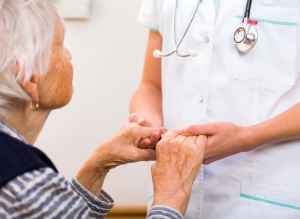
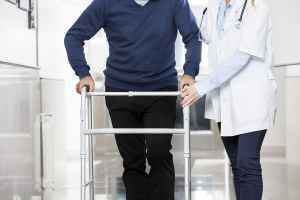


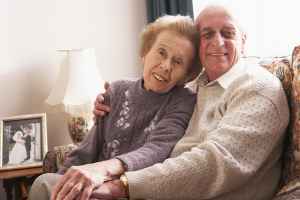



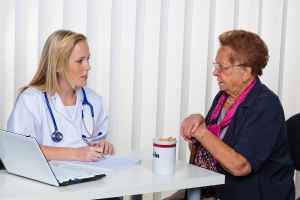

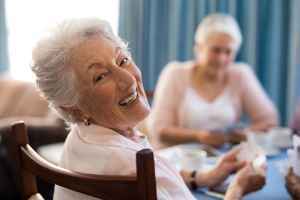

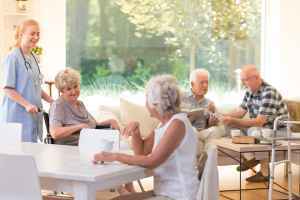



 Your Information is Processing
Your Information is Processing